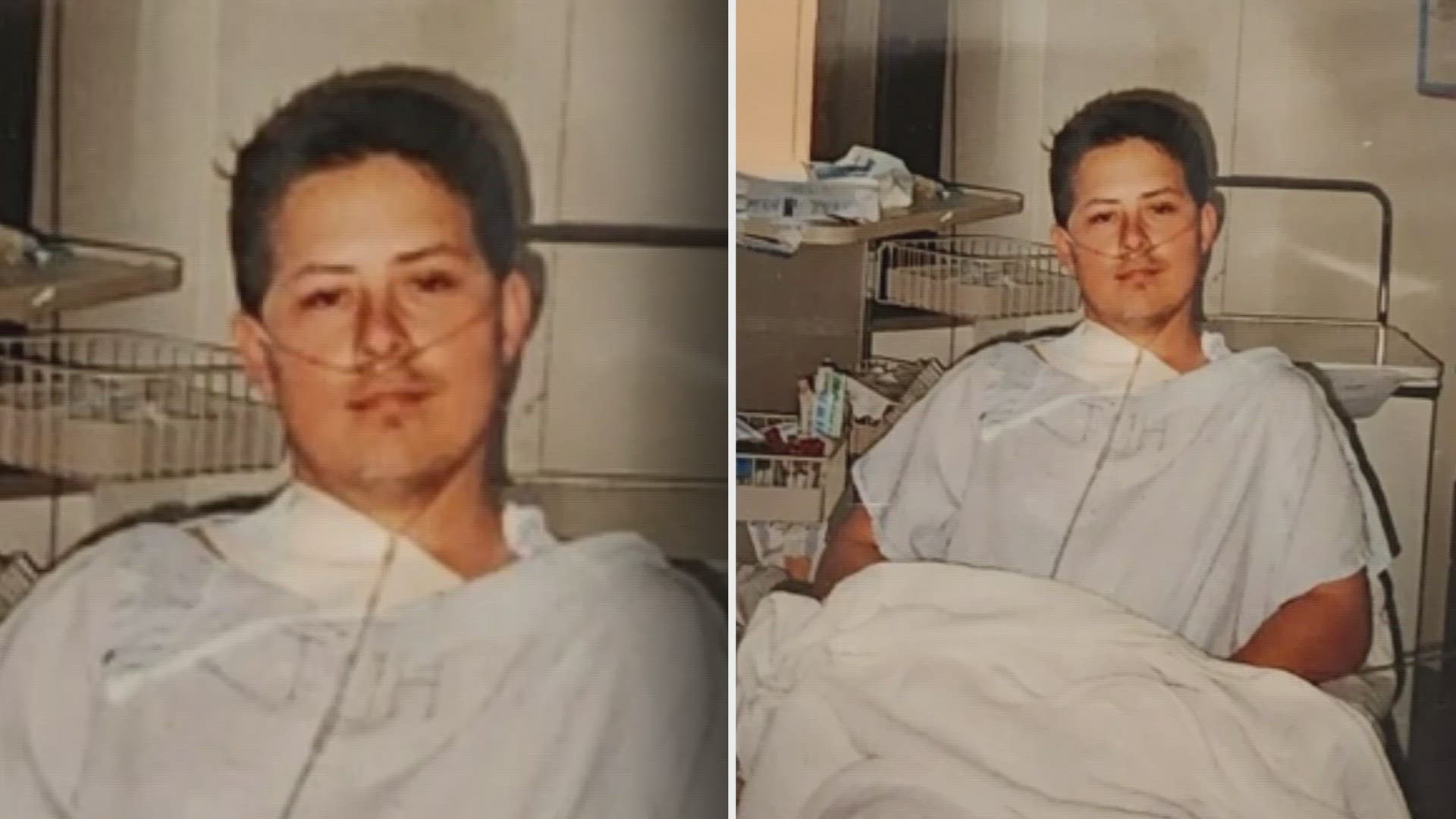PHOENIX — Doyle Duke's stomach was hurting last week. For some, it wouldn't be that big of a deal. However, for someone four months removed from the first-ever triple organ transplant in Arizona, stomach pain can be a sign of so much more.
“That required an immediate evaluation, and we identified that is really a serious problem," said Dr. Bashar Aqel, the head of the Mayo Clinic Transplant Department.
The diagnosis was pancreatitis. Duke needed to go through another procedure on Good Friday. He woke up on Easter, and his wife said he seemed to be in good spirits.
However, complications are common for people going through organ transplants.
“Transplant is not simple surgery where you go and you complete surgery and you are done. It is a change of your life,” Dr. Aqel said. "To maintain the functionality of those organs, it will require you to go through intense monitoring and be on medications for the rest of your life."
The reality, the transplant is often the start of a new road to recovery, not the finish line.
The procedure
Duke had known for decades that he had a heart problem.
It was during a routine physical that he needed to join his high school baseball team when doctors heard a murmur in his heart. It turned out to be idiopathic hypertrophic subaortic stenosis or IHSS, a condition that causes the heart muscle to become abnormally thick.
His baseball dreams of going pro were crushed. Over the course of his life, Duke underwent five ablation open-heart surgeries.
“I had a good run there for a while, I was feeling pretty good and then, it started deteriorating,” said Duke. “Since 2012 it just got worse and worse and worse.”
In May of last year, his heart started to fail, followed by his liver, and then his kidneys.
No hospital in Oklahoma could carry out a triple organ transplant, so Duke and his wife Billie came to the Mayo Clinic in Arizona for help.
On December 7, Duke’s more than 14-hour surgery, which ended the next day, was performed. Doctors successfully completed the rare medical procedure.
“You don’t know how blessed I am,” Duke said. “Now I can hear that heartbeat. I can feel it. It’s so strong, and it beats away.”
“When he woke up, it was wonderful. I don’t even know how to explain it," Billie Duke said.
The beginning of a new journey
“I don’t think people realize how hard it is, how stressful it is, and how slow the process it is," Billie Duke said.
"The recovery process can be slower, and the chance of having setbacks is much higher," Dr. Aqel said.
In the weeks after a transplant, patients are carefully monitored. Patients take medication that lowers the immune system's ability to fight off infection to improve the odds of the body accepting the transplanted organs. With all the medication, there can be unexpected side effects.
"You still have to be taken care of 100%," Billie Duke said.
Even after leaving the hospital, Dr. Aqel said the patient will always need to be monitored to help get back to a normal life.
Up to Speed
Catch up on the latest news and stories on the 12News YouTube channel. Subscribe today.

